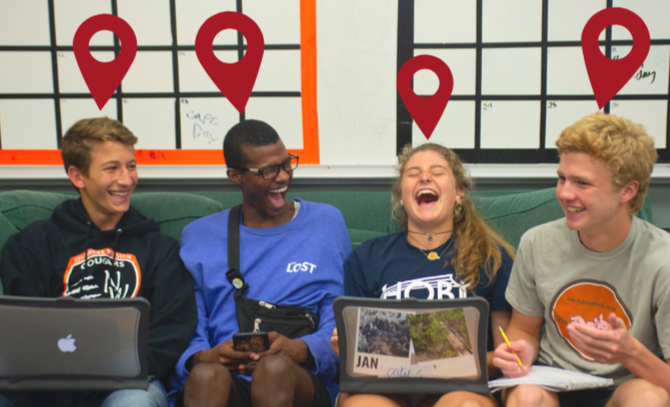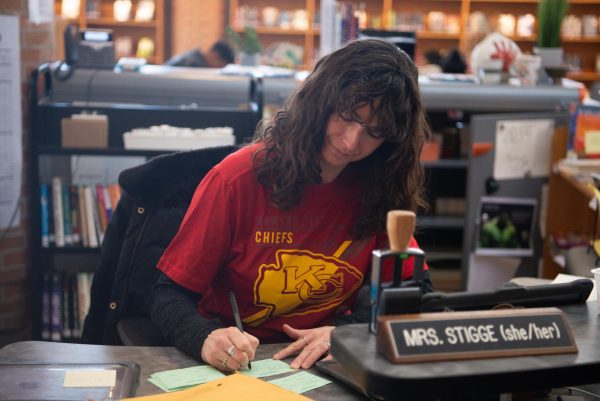X Marks The Spot
Calling home to let your parents know where you are is so last century. Today’s parents are tracking their children and today’s children are tracking their friends.
September 27, 2018
Picture this: it’s 9 p.m., you’re sleeping over at your best friend’s house. You decide to go out for ice cream
and you get a phone call from your mom, demanding to know where you’re going. It’s frustrating, but it can be important for your safety.
With horrifying situations happening so close to home, such as 20-year-old Mollie Tibbetts disappearing in Iowa on July 18, parents checking in has become more of a necessity than a bother. Tibbetts was later found dead on Aug. 20. Lately,
it seems that these stories are appearing more and more in the news. It’s no surprise that tracking apps have become more popular with parents.
While, of course, some parents want their children to be safe, some are just worried about their child being dishonest about where they are going. Either way, some students feel as if their parents are invading their privacy.
According to a poll of 385 NW students, there are two main ways that parents track their children: 14.5 percent use Life360 and 15.6 percent use Find my Friends by Apple. Life360 is the more invasive app of the two, including features that show how fast your student is driving and when the front door is unlocked. For some families, this is perfect; for others, it may seem far too nosy. Families falling into the latter category may opt to use Find my Friends, which only shares locations.
Freshman Ella Mackiewicz is one student that uses Find my Friends with her family. Though it doesn’t exactly make her feel safer, she understands why her parents decide to track her.
“ if I’m going alone somewhere, so they can see I arrived safely,” Mackiewicz said. “I don’t mind because if I’m hurt, they can see where I am and help me.”
A majority of students fall into the same boat as Mackiewicz: 27.5 percent of students either say that the apps don’t make much of a difference to them, or that they believe it’s unnecessary.
Other students, like junior Mason Larkins, believe tracking apps are nothing but a burden. Six point eight percent of students agree with Larkins, dislike the apps and feel like they are an invasion of privacy.
The smallest percentage of students feel safer being tracked by a parent, sitting at just 2.6 percent. Senior Alex Walsh is one of these students; in fact, she chooses to share her location with her mom.
“I chose to have my mom track me because she gets nervous and I don’t want her to worry about me,” Walsh said. “That way if she ever wants to know where I am, she can just look.”
Most students that feel safer with the apps on their phone understand the risks of being a teenager in this day and age, and want to make sure that they are staying as secure as possible. However some students know this, but still feel annoyed by the apps. Junior Brianna Ibarra always communicates her plans with her parents, but sometimes forgets to let them know when plans change, a problem that most teens using tracking apps can relate to.
“I tell them where I’m starting my day or night, but then sometimes plans change and if my location does as well, I don’t need them hitting up my phone asking what I’m doing”, Ibarra said.
Whether students like it or not, tracking apps are growing in popularity with the parents of our generation. Parents are worried about their children’s safety, and for good reason. Life360 offers real stories of lives being saved with the app. One father, Ryan D., shared his story with the app.
“Our two oldest boys were in a terrible car accident,” Ryan D. said. “At highway speed they, were contacted by another car and flew off the highway. The Life360 app called emergency services on their behalf and alerted both my wife and I. I’m so grateful for Life360 and that they both walked away without a scratch.”













